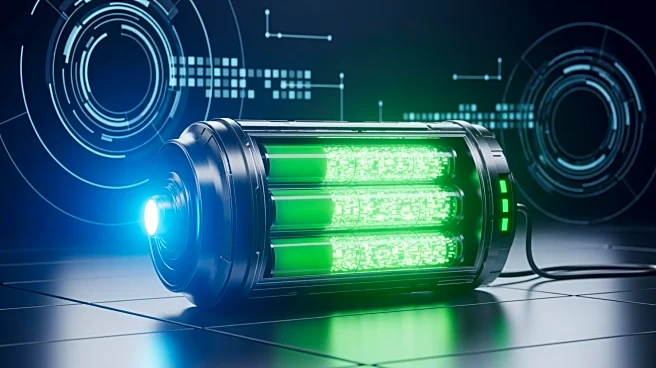What's Happening?
Echandia, a Swedish developer of battery systems for maritime applications, has been selected to supply energy storage systems for eight new cargo vessels owned by the Spliethoff Group, with an option for two additional vessels. These vessels are being
constructed at Wuhu Shipyard in China, with WE Tech Solutions serving as the system integrator. The battery systems are designed to optimize generator efficiency during cargo loading and unloading operations, which require short but intense bursts of power. Each vessel will have a dedicated battery system to stabilize engine load, improve fuel efficiency, and reduce mechanical wear, as well as decrease the power requirements for shore-power connections. The first delivery of these systems is scheduled for April 2027, with commissioning expected by late 2027 or early 2028. The vessels will primarily operate on the Finland-USA trade route, transporting paper and other cargo.
Why It's Important?
This development is significant as it highlights the growing trend of integrating advanced battery systems in maritime operations to enhance efficiency and sustainability. By improving fuel efficiency and reducing mechanical wear, these systems can lead to cost savings and lower environmental impact for shipping companies. The collaboration between Echandia, Spliethoff, WE Tech Solutions, and Wuhu Shipyard represents a step forward in the adoption of green technologies in the shipping industry. This move could set a precedent for other shipping companies to follow, potentially leading to broader adoption of similar technologies across the industry. The focus on optimizing cargo operations rather than propulsion alone demonstrates a holistic approach to energy efficiency in maritime logistics.
What's Next?
The successful implementation of Echandia's battery systems in Spliethoff's vessels could encourage further investments in similar technologies by other maritime companies. As the shipping industry faces increasing pressure to reduce emissions and improve sustainability, the adoption of energy-efficient solutions like these battery systems could become more widespread. Stakeholders in the maritime industry, including shipbuilders, operators, and technology providers, may closely monitor the outcomes of this project to assess its viability and potential for broader application. Additionally, regulatory bodies might consider incentivizing the use of such technologies to promote environmental sustainability in maritime operations.















